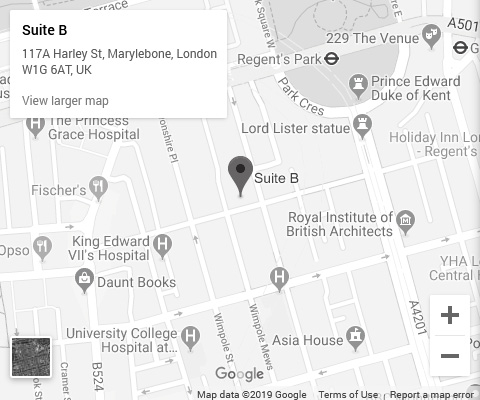
Choosing the right contraception is an important decision that affects your health, lifestyle, and peace of mind. With so many options available in the UK - from pills and patches to long-acting methods like coils and implants - it can feel overwhelming to decide which suits you best. Each method has its own benefits, effectiveness rates, and potential side effects. Factors such as your age, medical history, convenience, and future pregnancy plans all play a role in making the right choice. In this guide, we’ll explore the most common contraception options to help you make an informed and confident decision.
Understanding the Basics of Contraception
So, what exactly is contraception? Simply put, it’s any method, device, or medication used to prevent pregnancy. From condoms to implants, there’s a wide array of options designed to cater to different needs. According to data, over 70% of women aged 16-49 in the UK use some form of contraception, highlighting its widespread importance. But here’s the catch: not all methods are created equal. Effectiveness varies depending on “perfect use” (used exactly as instructed) versus “typical use” (how people actually use it). For instance, condoms are around 98% effective with perfect use but drop to about 85% with typical use due to human error. Understanding these basics sets the stage for making an informed choice.
Comparing Contraception Methods in the UK
Let’s break it down with a quick comparison table:
|
Method |
Effectiveness (%) |
Cost () |
Availablity |
|
Condoms |
85-98 |
Free |
Widely available |
|
Pill (Combined) |
91-99 |
Free |
Prescription |
|
IUD (Copper Coil) |
>99 |
Free |
GP/ clinics |
|
Implant |
>99 |
Free |
GP/ clinics |
|
Emergency Pill |
52-89 (depends on type) |
£20+ (private) |
Pharmacies/GPs |
Your age, lifestyle, and personal preferences play a big role in determining suitability. For example, someone with a busy schedule might prefer long-term solutions like an implant, while others may value the non-hormonal nature of condoms or the copper coil.
Hormonal vs Non-Hormonal Options
Now let’s tackle the great debate: hormonal versus non-hormonal contraception. Hormonal methods include the pill, patch, injection, implant, and intrauterine system (IUS). These work by altering hormone levels to prevent ovulation or fertilisation. On the flip side, non-hormonal methods like condoms, the copper intrauterine device (IUD), and natural family planning rely on physical barriers or tracking fertility cycles.
Pros of Hormonal Methods: Highly effective, convenient, and often reversible.
Cons: Potential side effects like mood swings, weight gain, or irregular periods.
Pros of Non-Hormonal Methods: No hormonal interference, eco-friendly (e.g., condoms), and immediate reversibility.
Cons: Lower effectiveness compared to some hormonal methods, requires consistent use (e.g., condoms).
The key is finding balance - what works for your body and fits seamlessly into your life.
Find Your Perfect Contraception
Explore all your options and choose the method that fits your lifestyle. Take our quick guide and make an informed decision today.
Long-Acting Reversible Contraception (LARC)
If convenience is your priority, LARC methods are worth considering. This group includes intrauterine devices (IUDs), intrauterine systems (IUS), implants, and injections. They’re called “long-acting” because they last several years without daily maintenance. The implant, for instance, lasts up to three years, while the copper IUD can last up to 10 years!
Effectiveness and Convenience: LARCs boast over 99% effectiveness, making them among the most reliable forms of contraception. Plus, once inserted, you don’t need to think about them until renewal time.
Costs Under vs Private Clinics: Thankfully, LARCs are free under the . However, if you opt for private services, costs can range from £150 to £300 depending on the method.
For those who want peace of mind without daily reminders, LARCs are a game-changer.
Emergency Contraception in the UK
Mistakes happen - even with the best intentions. That’s where emergency contraception comes in. In the UK, you have two main options: the morning-after pill (Levonelle or ellaOne) and the copper coil. Timing is critical - the sooner you act, the better. Levonelle is effective up to 72 hours after unprotected sex, while ellaOne extends this window to 120 hours. The copper coil, however, remains effective up to five days post-intercourse and doubles as ongoing contraception.
Where can you access these quickly? Pharmacies, sexual health clinics, and even some GPs offer same-day appointments. Many pharmacies operate walk-in services, ensuring you get the care you need promptly.
Focus on Specific Methods
Let’s zoom in on a few popular methods:
Implant
The contraceptive implant - a small rod placed under the skin of your arm - is a low-maintenance wonder. It releases hormones steadily over three years, offering near-perfect protection against pregnancy. Risks include minor side effects like headaches or changes in menstrual patterns, but benefits outweigh these for most users.
IUS vs IUD
Here’s a common confusion: what’s the difference between an IUS and an IUD? Both are T-shaped devices inserted into the uterus, but the IUS releases hormones, while the IUD uses copper to create a hostile environment for sperm. The IUS tends to lighten periods, whereas the IUD can make them heavier initially.
Condoms
Are condoms enough birth control? Yes - if used consistently and correctly. Beyond pregnancy prevention, they also protect against sexually transmitted infections (STIs), something hormonal methods don’t cover.
Accessibility and Where to Get Contraception
In the UK, accessing contraception is straightforward thanks to services. GP surgeries, sexual health clinics, and community pharmacies provide free consultations and prescriptions. For added convenience, online pharmacies now offer discreet delivery and same-day services. Confidential services are especially helpful for young people under 25, ensuring privacy and support.
Natural and Alternative Options
For those wary of medical interventions, natural family planning offers an alternative. Apps like Natural Cycles track basal body temperature and menstrual cycles to predict fertile windows. While appealing, their effectiveness (around 76-88%) pales in comparison to medical methods. If you choose this route, pair it with another form of contraception for added security.
Permanent Contraception Options
If you’re certain you don’t want children - or more children - permanent options like sterilisation or vasectomy come into play. Female sterilisation involves blocking or sealing fallopian tubes, while male vasectomy cuts or ties the tubes carrying sperm. Both procedures are highly effective but irreversible, so counselling is mandatory before proceeding.
Choosing the Right Option for You
Ultimately, selecting contraception boils down to personal factors. Consider your lifestyle - are you forgetful with pills, or do you travel frequently? Do you have any health conditions that rule out certain methods? Are you planning for future pregnancies? Consulting a GP or visiting a sexual health clinic can clarify doubts and guide you toward the best fit.
Conclusion
Navigating contraception options in the UK can feel overwhelming, but armed with knowledge, you’re well-equipped to make the right choice. Remember, there’s no one-size-fits-all solution - what works for your friend might not suit you. Whether you lean toward high-tech LARCs, trusty condoms, or app-based tracking, the decision should reflect your unique circumstances. Don’t hesitate to seek advice from professionals or explore resources provided by the and local clinics. After all, taking control of your reproductive health is one of the most empowering steps you can take.






-in-the-UK.jpg)

